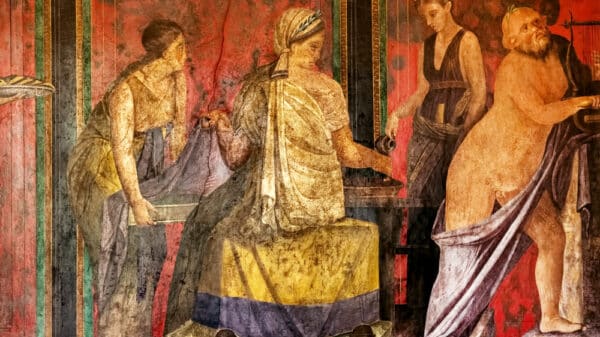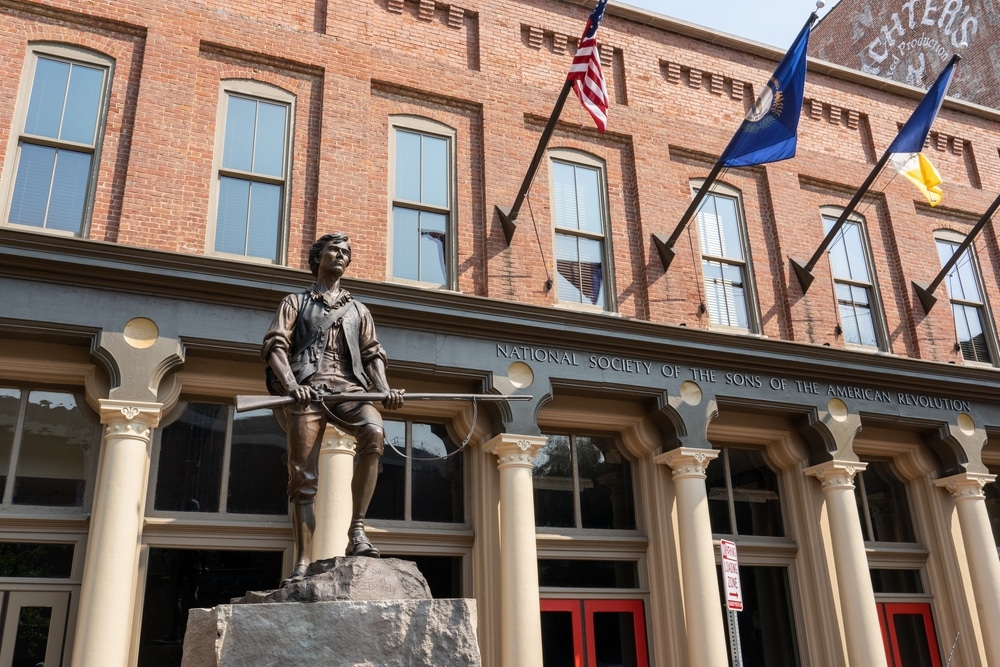The conclusion of the French and Indian War in 1763 brought an end to New France as a threat to British colonists and set the stage for the journey towards American independence. The military efforts during the war, coupled with British Prime Minister William Pitt’s decision to retain a significant number of troops in the colonies, resulted in Great Britain’s national debt doubling.
To generate revenue, Parliament enforced the Navigation Acts, which specified certain commodities that could only be traded within the English empire. However, the colonists’ non-compliance with the shipping regulations led to minimal revenue due to an increase in smuggling. George Grenville, who succeeded Pitt, pursued a different strategy to compel the colonists to contribute what he deemed as their fair share for the services of the British army stationed in America.
In 1764, Grenville urged Parliament to approve the Sugar Act, also known as the Revenue Act, which imposed tariffs on sugar, wine, coffee, and other imported items in the colonies. This legislation incited anger among Americans who argued that Britain lacked the authority to tax them since they had no representation in Parliament. Grenville contended that every Parliament member represented every individual in the British Empire, yet the colonists resisted paying the tax and continued smuggling goods.
The insufficient proceeds from the Sugar Act compelled Grenville and Parliament to introduce the Stamp Act, which levied taxes on all printed materials, such as legal documents, playing cards, and newspapers. Selling pamphlets or newspapers, or issuing diplomas or licenses, necessitated the purchase of special stamps to be affixed to the printed material.
Grenville anticipated that the colonists would accept the tax with minimal objection as similar taxes were prevalent in England. However, Americans perceived the Stamp Act as a direct tax remitted directly to England rather than to their own legislative bodies, thereby once again questioning Parliament’s right to tax without representation.
The colonists also grew wary of the escalation of British military presence in America, a region that finally seemed secure. The Proclamation of 1763, enacted by Parliament to forbid white settlements west of the Appalachian Mountains, reinforced suspicions that the British troops stationed in America were not for the colonists’ protection. Many Patriots suspected that the British administration intended to employ the soldiers against Americans and enforce the Navigation Acts and tax collection to curb their liberties.
In October 1765, the Stamp Act Congress, comprising representatives from nine colonies, petitioned Parliament for the repeal of the act. Grenville disregarded the colonists’ appeals and enforced the tax. Opposition to England’s efforts to tighten control over the colonies turned violent as groups like the Sons of Liberty instigated riots and vandalized the residences of stamp distributors. The violence threatened the safety of the distributors and their families, compelling them to resign. By the time the new law came into effect, there were no distributors left in the colonies to vend the stamps, making enforcement impossible.
Many Americans established non-importation agreements that significantly reduced purchases from England. British traders, manufacturers, and shippers suffered due to diminished trade, pressuring Parliament to revoke the Stamp Act. The colonists lifted the boycott on British goods and celebrated their triumph against the Crown, but their joy was short-lived.
Simultaneously with the repeal of the Stamp Act, Parliament passed the Declaratory Act, reaffirming England’s authority to enact any laws to bind the American colonies and populace. The colonists remained subjects, and the British government asserted its absolute sovereignty over the North American colonies.
Introduction of the Townshend Duties
The rescindment of the Stamp Act did not mark the conclusion of Britain’s intention to tax the colonies. In 1767, Chancellor of the Exchequer Charles Townshend proposed imposing new customs duties on prominent imported items in the colonies. Parliament sanctioned The Townshend duties, also known as the Townshend Revenue Act, which imposed taxes on a broad array of imports such as glass, lead, paints, paper, silk, and tea. Unlike the Stamp Act, the fresh levy represented an indirect tax payable at American ports.
During this period, Parliament also instituted several administrativemeasures. It established a Board of Customs Commissioners to ensure trade regulations were upheld and set up vice-admiralty courts to handle colonists who breached the law. The British government funded colonial governors’ salaries using funds gathered from the Americans, preventing colonial assemblies from withholding the wages. Parliament reduced the number of British troops in North America and shifted the financial burden of maintaining the remaining soldiers solely onto the colonists.
Patriot leaders reacted to the Townshend duties much like they did when the Stamp Act was introduced—by boycotting British goods. However, this time, their attempts to disrupt the British economy did not yield the same outcomes. Many colonists were indifferent to the new tax as it was minor and indirect, and they could still obtain goods through an expanding network of smugglers. Samuel Adams, a vocal advocate of the non-importation agreement, urged street mobs to involve merchants in the boycott, even those loyal to the Crown.
Amid escalating conflict in the colonies, Britain transferred two regiments of troops to Boston. The sight of red-clad British soldiers patrolling city streets fueled colonists’ beliefs that their freedoms were under threat, leading to a rise in resentment towards England. Regular fistfights ensued as Americans taunted the redcoats, daring them to retaliate. Both factions’ leaders recognized the potential for a single incident to trigger a catastrophic riot.
On March 5, 1770, tensions peaked between the two sides when a small group of colonists pelted a British soldier guarding the Custom House with snowballs. The crowd swelled as the participants’ taunts grew more hostile. When the menacing mob advanced toward the building, the British soldiers, feeling cornered, opened fire into the crowd. Five Boston residents lost their lives, and several others sustained injuries. Among those killed was Crispus Attucks, a fugitive mixed-race slave and a key instigator of the event.
The violent clash was dubbed the “Boston Massacre” by colonists, who demanded retribution. Future president John Adams volunteered as the defense attorney for the British soldiers to ensure a fair trial. Ultimately, all but two soldiers were acquitted of any wrongdoing.
On the same day as the Boston Massacre, Parliament, under the guidance of the new Prime Minister Lord North, rescinded all Townshend duties except for the tax on tea. Over the following two years, colonists’ efforts to enforce the boycott on British goods dwindled, ushering in an uneasy truce between American Patriots and the British government.
The Boston Tea Party
In 1773, the British East India Tea Company faced financial ruin. With over 17 million pounds of tea languishing in warehouses, the English tea industry suffered due to American boycotts and smuggling. To avoid losing significant tax revenue if the company collapsed, the British government passed a Tea Act permitting the company to sell directly to American merchants at discounted rates, bypassing English and American wholesalers.
The act undermined American smugglers and provoked other colonists who felt deceived by the low prices, suspecting a ploy to make them pay the tea duty. Entrepreneurs feared that granting the East India Tea Company a monopoly on the colonial market might lead to controlling all American trade.
The Tea Act reignited colonists’ animosity toward Parliament, sparking protests against British regulations. Mobs congregated at ports in New York and Philadelphia, thwarting British ships’ crews from unloading their tea cargo. The New York governor mandated that the tea could only be unloaded under the threat of force, employing the bayonet and cannon.
In Boston, residents opted for a different tactic to stop the British ships from docking their cargoes. Massachusetts governor Thomas Hutchinson was resolute in asserting royal authority over the “rebels” and ordered the tea ships to remain anchored in Boston harbor until their cargoes were offloaded. On the night of December 16, 1773, Samuel Adams and approximately fifty Sons of Liberty members disguised as Indians boarded the vessels. Spectators watched from the dock as the colonists emptied several hundred chests of tea into Boston harbor.
Colonists had mixed reactions to their compatriots’ defiant act. While many citizens, like Boston’s John Adams, celebrated the bold move, others, including Benjamin Franklin, were taken aback by the destruction of private property. Critics of the rebellious act in Boston harbor believed it jeopardized civil society and feared severe repercussions from Parliament.
Upon learning of the Boston Tea Party, British authorities in London were incensed. King George III instructed Lord North to compel the colonists to either submit to the Crown or face the consequences. The prime minister, steadfast in testing the Americans’ resolve, pushed Parliament to enact measures to discipline the “arrogant” colonists. The Boston Tea Party effectively quelled any publicBacking in the United Kingdom for the American stance.
During 1774, the governing body put into effect four legislations commonly referred to as the “Coercive Measures,” aiming to strengthen Britain’s hold over the territories:
- The Closure of the Boston Port Act restricted the harbor city’s access to all business transactions until reparation was made to the East India Company for the ruined tea.
- The Legislation of Judicial Management Act, known as the “Assassination Law” in Massachusetts, shifted legal proceedings concerning royal officials indicted for severe crimes to Great Britain, where numerous colonists thought they would evade punishment.
- The Regulation of the Massachusetts Government Act expanded the powers of the governor, curtailed the influence of local assemblies, and rendered elected positions subject to appointments by the crown.
- The Billeting Act, applied across all American settlements, mandated individuals to lodge British troops in cases of insufficient housing elsewhere.
While not officially categorized under the Coercive Measures, the Parliament simultaneously approved the Quebec Decree, extending the Canadian boundary southward to encompass the Ohio River Valley, a region previously claimed by Massachusetts, Connecticut, and Virginia. Several residents believed that the set of five policies, termed the Insufferable Measures, directly imperiled their freedom.
Lord North viewed the colonies as distinct entities and aimed the Coercive Measures at Massachusetts as a consequence of the Boston Tea Party. He presumed that the Americans were generally satisfied with British authority and would not resist the imposed limitations directed at merely one province. Nonetheless, he failed to acknowledge that many Americans rejected Britain’s assertion of total dominion over the territories. The Insufferable Measures intensified the opposition of American Patriots toward Great Britain.
Image Source: Rosemarie Mosteller / Shutterstock






























